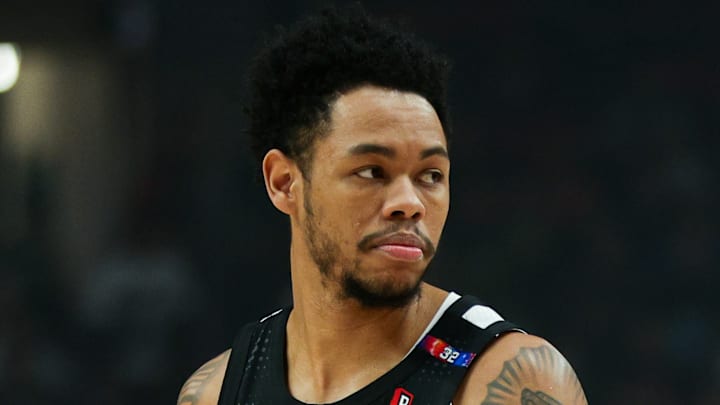The Boston Celtics traded Jrue Holiday for Anfernee Simons, with their financial future at the forefront of the reasons why. Not only did they cut down on their payroll for the upcoming season, but they also shed the final two years of Holiday’s contract from their books. And Simons’ player type is slowly losing ground in the NBA.
In today’s NBA, defense is as important as ever. Teams are scouring lineups for weak links, desperate to find points of attack. Rudy Gobert gets brought out to the perimeter constantly in the postseason. Karl-Anthony Towns suffers the same fate. Guys like Stephen Curry and Trae Young get targeted all the time.
As a result, score-heavy guards who aren’t great at defense are slowly falling out of favor.
Why are Anfernee Simons types losing value?
The past two NBA Champions, the Oklahoma City Thunder in 2025 and the Celtics in 2024, have built near-perfect lineups. Rosters of guys with very few weaknesses on the basketball court. It’s how they reached the heights they did.
Boston’s biggest weak points in the starting lineup were Al Horford and Derrick White, and both of those guys have made All-Defensive Teams. As for the Thunder, Shai Gilgeous-Alexander ended up getting attacked simply because there was nowhere else to go.
This isn’t to say that there’s no way to build a top team with defensive weaknesses in the lineup. The last two years have been the exceptions, not the rules. It’s hard to find rotations without some sort of defensive weakness.
But a quick glance at this summer’s offseason transactions, and it’s clear that players similar to Simons are losing value at a very rapid pace. People don’t want to pay these shifty, score-first guards who struggle on defense.
The Utah Jazz traded Collin Sexton, and all they got back in return was Jusuf Nurkic. And to make matters worse, they had to give up draft capital to the Charlotte Hornets in the deal.
Meanwhile, Jordan Clarkson, who was a Sixth Man of the Year winner not too long ago, just signed a minimum contract despite averaging 16.2 points per game last year.
There are obviously some examples of score-first guards getting hefty contracts, but most, if not all of them, are at least passable on the defensive end. If Simons can become that, then he’ll fall into that realm of player.
If not, then it will become clear why his trade value is what it is: Close to non-existent. (And for those arguing that he was just traded for Holiday, that was largely a financial decision for the Celtics.)
